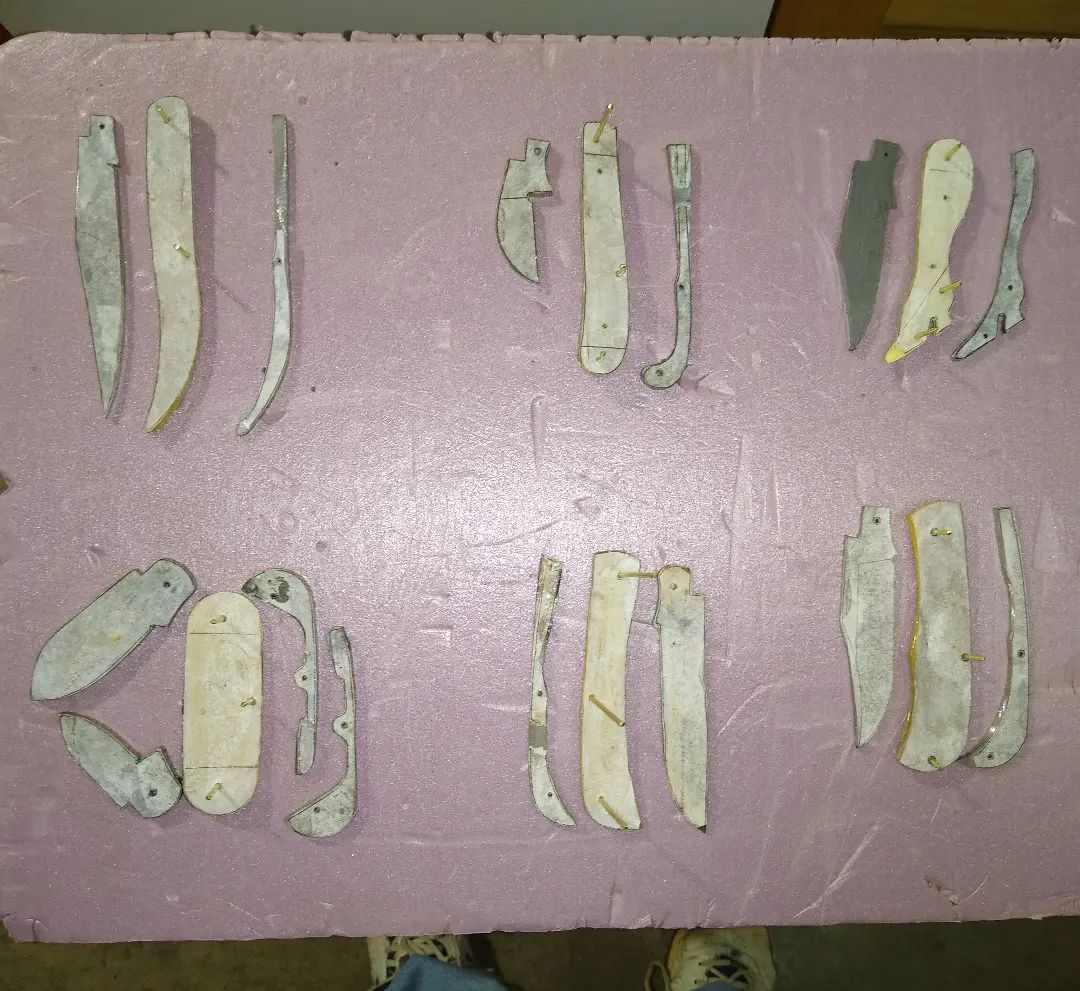Did you look at the Coote?
I did, and for a simple machine it may be a good choice to copy, but it still looks like a grand to buy. Like all limited verticals this industry seems to have some fixed pricing that remains high. Granted, no one is getting rich selling belt grinders, but it seems like there is a sweet spot price right in that $1000 range. Unfortunately I am not ready to spend that.
The Coote design is kind of cool in that it is a drive wheel, an idler wheel and a chassis. Reminds me of the bench grinder to belt grinder conversions. However, it seems that the only difference between the 48 and 72 is ~12" of steel. It would seem that with a telescoping design, something could be made that would be able to use either size belt, or pretty much any length as long as it could be telescoped far enough.
I do like the 3 and 4 wheel designs because they seem to have a tighter footprint. The vertical footprint of the 2 wheel design quickly becomes a horizontal depth issue when shifting things around to access the contact wheel.
It seems that there are a few things necessary:
The ability to access a platen and table, for nice square grinds.
The ability to access a slack belt for convex grinds.
The ability to access a contact wheel for concave grinds.
I can do the platen and table thing on the 4x36. It is essentially the same amount of belt just distributed across the width rather than length. When I figure out the platen length, and the table design I will have this ability. Now that I have 2 different motors for it in place I can do both fast and slow. Unfortunately, I am not confident that the plastic wheels in this machine would tolerate being used as contact wheels at least for steel, probably still okay for wood and other handle materials. But we'll see. I can look into re-manufacturing the wheels, or replacing them, or not.
Drum/spindle sanders come to mind when I think of concave grinds. I already have an oscillating spindle sander, which provides me access to those shapes, but these would use sleeves as opposed to belts giving me far less surface area to work with. In addition to that I have other rubber drums that can be run in the drill press, or even on the lathe (in a drill chuck) and in theory, I can make up with spray adhesive and PVC pipe and some wooden end caps as long of a drum as my lathe will allow. So, in theory, if that concavity is required, I can have a lot of it. I just haven't figured out what I am going to need it for yet.
As for slacking, I can still use the 1x30's and especially turned 45° and flipped around. Granted, it is about 1/4 the belt realestate of the 2x72 but it certainly moves an abrasive belt in continuous motion across some materials.
There is another belt sander in my arsenal. It is the hand-held one, that would run just as happily clamped upside down in a vise. Depending on the wheel make-up it may provide small (2" or maybe 2-1/2") contact wheel support. Not sure, haven't messed with it to see.
And there is always the angle grinder with disks, and flapwheels and so on.
I am pretty sure that if I had nothing and had to start from scratch the decision to grab the 2x72 or 2x48 would be a no-brainer. I am however, not in that position. I have certain things, and some of them will either have to become specialized, or more generalized.
In the end, there are "tasks" that need to be accomplished. Many of these tasks are solved by purpose built machines such as the 2x72 grinders. However, most if not all, can be accomplished some other way. Once I understand the tasks, I can come up with a way to solve them with what I have, or a slight modification to what I have. Certain things will be critical and precision such as right angles, and other specific angles. Other things perhaps not-so-much.
Right now, I just need to start understanding the processes necessary, and worry less about which tool someone is using to accomplish it. Certainly, I still don't have a milling machine, and for some reason the last 3 tutorials I have watched seem to feel it quite necessary to mill the inside of the liners... And, a cheap mill... that comes in right around the cost of a cheap 2x72


